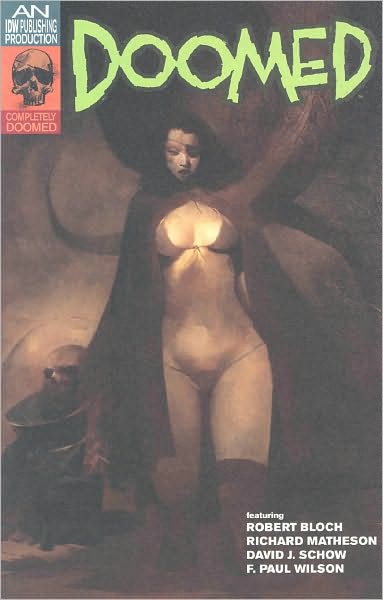
The '40s month on Rara-Avis gave me an incentive (however weak, given that most of its contents are from the legendary Manhunt magazine's heyday a decade later) to read Leo Margulies's 1960 Pyramid Books antho Dames, Danger, Death. The major 1940s entry, the only one copyrighted and probably the only one written in the '40s, is a "real" Brett Halliday (Davis Dresser) Mike Shayne story, "Death Goes to the Post," from the underappreciated Street & Smith's Detective Story Magazine in 1942 (not as literate as EQMM, nor as impressive as Black Mask or Dime Detective in their best years--but as a magazine a wide-ranging assortment of nearly all the kinds of pulp, and wartime digest, crime fiction in the issues I have read, most of those actually from a British reprint run). Unsurprisingly, this early Shayne is a hell of a lot fresher than most of the ghostwritten items hacked out for Margulies's Mike Shayne Mystery Magazine, and one can here see the seeds of Hammer and all the less-romantic children of Marlowe, the less emotionally-distant offspring of the Continental Op.
The book opens and closes with two pseudonymous stories by Salvatore Lombino, at time of writing not yet, I think, legally Evan Hunter, and only jokingly "Curt Cannon," who with "Now Die in It" offers about as deft a parody/pastiche-straddler of Hammer (from a 1953 Manhunt) as was Howard Browne's "The Veiled Woman" from a slightly earlier issue of Fantastic. "Curt Cannon" is both author and protag, doncha know, much like Ellery Queen, and he gets tied up with teenagers who run "nightclubs" of sorts out of their families' rec-rooms, and the nymphomaniac who patronizes one in particular. She, like some of Hammer's companions, can't get enough abuse-as-foreplay. It's a nice touch that this percussive fellow starts out as a down-and-out flophouse resident, reminiscent of what I've read about Barry "Mike Barry" Malzberg's later Executioner-style series, The Lone Wolf books, wherein apparently no bones are made about the protagonist being a deteriorating sociopath.
"Classification: Dead," as by Richard Marsten, is mostly notable for the depth of hatred Lombino/Hunter evinces for both abortionists and abortion as a concept. Henry Kane has a decent Peter Chambers story here, "Sweet Charlie"; Frank Kane, a more ridiculously terse attempt at an ultra-hardboiled Johnny Liddell story, "Sleep Without Dreams" (somehow, it doesn't surprise me that Liddell stories would eventually pop up in the bottom-of-the market Web Detective by the turn of the '60s). Richard Prather's Shell Scott story "Squeeze Play" bounces along as nicely as you'd expect; Richard Deming's "Optical Illusion" is disappointing when compared to his later work, which I usually enjoy, but is a solid if unexciting example of the criminal-with-scruples-and-injured-vanity taking on his rivals. Best in the book is Jonathan Craig's "A Lady of Talent," a police procedural of sorts in this book supposedly of PI stories, and the story which really gets at the urban High Lonesome of hardboiled, with a fully human touch that the others tend to lack. Perhaps because this is a Margulies antho, or so I gather from the others attributed to him and published by Pyramid at about the same time, wherein he was (and his ghost-editors were) more interested, apparently, in overlooked and interesting than in actually Good work. Nonetheless, this is a valuable core-ssmpling of the Manhunt/MSMM-style story, one of the dominant modes of short crime-fiction in the 1950s and '60s, and still influential through the various hardboiled short-fiction venues since.
Please eee Patti Abbott's blog for more "forgotten" books for this week, and previously.









